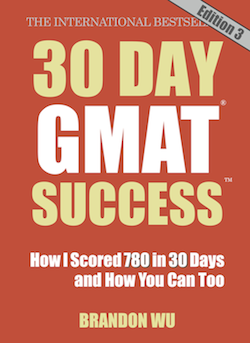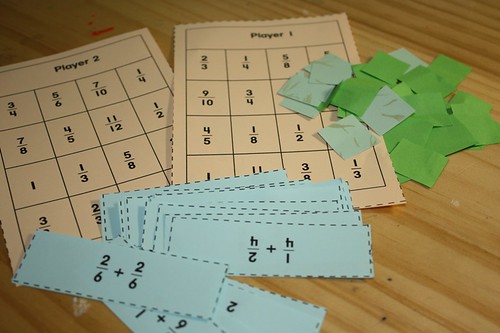Get Over Your Fear of Fractions!
If you’ve read the Assigning Values section in my book, you probably already have a good working knowledge of the fundamentals of this strategy. You will probably immediately recognize that question 198 on page 180 of the GMAT Official Guide 13th Edition is a good candidate for the Assigning Values technique because it has variables in the answers. But you may still struggle to work through an Assigning Values question from beginning to end, especially one this complicated. Let’s try this one together.
This question is tricky because you may have difficulty deciding to which variable to assign a value first. Don’t worry! Just start working and if you haven’t chosen the right one, it will quickly become apparent. Let’s assign a value to r. Let’s say that r is 10. That means I need to know how many Newspapers A were sold to obtain the revenue, and from there I need to calculate total revenue that will have the revenue from Newspaper A as 10 percent.
Confused? It’s OK! Just start again. What if we assign a value to p first?
If sales of Newspaper A were 50 percent of all sales and 8 newspapers were sold, then there were $4 in sales of Newspaper A and $5 _in sales of Newspaper B. I chose 8 because I want the total number of Newspapers B sold to be a multiple of 4 since the price of a Newspaper B contains a ¼ value. It really doesn’t matter what number you choose, but identifying relationships like that can make the math much easier to do. Therefore, _r will be 4⁄9 (the revenue from Newspaper A divided by the total revenue). Don’t waste time calculating any further until you see it’s necessary. Let’s look at the answers.
A) (100 x 50)⁄75 = 100(2⁄3) = 200⁄3
B) (150 x 50)⁄200 = 150(1⁄4) = 150⁄4
How did I do my calculations for the first two answers? When you have multiplication in the numerator of a fraction, the denominator can apply to either number, so look for a pattern. I wrote answer (A) as 100⁄1 x 50⁄75 because 50⁄75 is easy to reduce to 2⁄3.
C) (300 x 50)⁄325 = 12⁄13 x 50 = 600⁄13
For answer (C), I chose to apply the denominator to the first number, because they were each easily divisible by 25. So I ended up with 400⁄450 x 50⁄1 which reduces to 12⁄13 x 50⁄1. Then, 12 x 5 is 60 and I just added the zero on to the end. I applied to same process to the final two answers.
D) (400 x 50)⁄450 = 16⁄18 x 50 = 80⁄18
E) (500 x 50)⁄525 = 20⁄23 x 50 = 1,000⁄23
You should be able to tell that answer (D) has a clear relationship to 4⁄9 once you reduce the fraction by half. Don’t take the calculations any further than you have to.
Want more information? Check out the Assigning Values section of my 30 Day GMAT Success book!
Image Courtesy of jimmiehomeschoolmom with Creative Commons License

